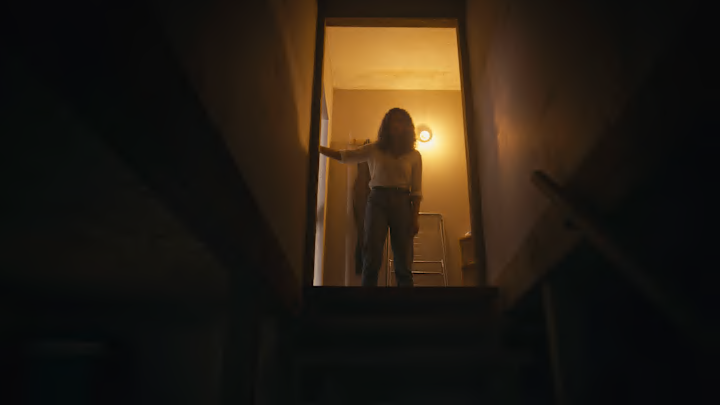Perhaps more than any other director in the history of cinema, Alfred Hitchcock was fascinated by identity. Many of his films revolve around a case of mistaken identity. This was played out in many of his classic films, from Saboteur to The Wrong Man and on to North by Northwest.
In each case, our erstwhile hero has been accused of some villainous act and must fight his way through 120-odd minutes to clear his name.
In others, it's the protagonist themself who isn't quite sure of who they truly are. Hitchcock never resorted to anything as cumbersome as an actual mask, although there may be a wig involved. A prime example of this is the seminal thriller Psycho.
3 new classics on Netflix that wear their Alfred Hitchcock on their sleeves
The titular character of Marnie has a deeply hidden self as well. In both films, the truth is revealed to devastating effect on the lead characters. Depending on your (warped) viewpoint, you might say they both have happy endings.
Another variation of the identity crisis is the protagonist who wears a mask to hide their true self. I'm not talking about anything as crude as a whitened William Shatner mask, but a charming persona for the public that hides the rot within. Think Shadow of a Doubt, Rope, and Strangers on a Train.
When first seen, the lead is affable, charming, and clearly the hero of the piece. It doesn't take long for the audience, along with one unlucky soul in the film, to realize that the suave gentleman isn't quite so gentle after all.
All three of these films arrived on your favorite streamer on June 1st, along with six classics from Hitchcock himself. Okay, maybe Family Plot isn't the greatest, but it's still worth a look. While none of the films I referenced above are on Netflix, other than Psycho, it's worth your while to seek them out. In the meantime, bask in the glory of the Master's influence.
Barbarian
On the surface, there might not seem to be many similarities between a Hitchcock film like Shadow of a Doubt with its killer with a friendly face, and the shocking creature that eventually surfaces in Barbarian. But the title itself is the best connection. Who exactly is the Barbarian?
Without giving too much away, is it the all-too-friendly Keith, who somehow is already in the Airbnb Tess has reserved? Is it AJ, the somewhat scatter-brained owner of the house? Or could it be the original owner, Frank, who we see in flashbacks to have had a few secrets of his own? Identity and the true self are as much a part of the terror in this film as the monster in the basement.
It's a terrific blend of horror and suspense, a worthy successor to the mantle of Psycho. Georgina Campbell as Tess and Justin Long as AJ are the standouts, but everyone is exceptional. That goes double for writer-director Zach Cregger. His next film, Weapons, should be out this August, and I cannot wait. For now, enjoy as best you can the trailer for Barbarian.
The American
I see several parallels between the 2010 thriller The American and Hitchcock's 1946 classic, Notorious. Both star ridiculously handsome actors as American operatives; George Clooney in the former, Cary Grant in the latter. Both fall in love with the wrong woman; both men are forced to choose between their newfound love and their assignment.
After all, what could be more Hitchcockian than romance and death? I enjoyed the Clooney film, but comparing it to the postwar classic Notorious is a bit unfair. Director Anton Corbijn is quite the craftsman, as you can see in his third feature, A Most Wanted Man.
But directing a hundred music videos before you tackle your second movie isn't quite the same as having 32 features under your belt. It doesn't hurt to have Grant, Ingrid Bergman, and Claude Rains in your cast, either. For now, enjoy Mr. Clooney et al in the trailer for The American.
Us
I've only truly been upset while watching the Academy Awards show twice. The first time was when Denzel Washington lost the Best Actor award, despite his brilliant work in Fences. Sure, Casey Affleck was very good in Manchester by the Sea, but give me a break. I can't believe anyone who has seen both of those performances can honestly say that anyone touched Washington that year.
That was ridiculous. The second robbery was unconscionable. Lupita Nyong'o gave not one, but two amazing performances in Jordan Peele's thriller Us. What still remains inexplicable is not that Renée Zellweger won for Judy, but that Nyong'o wasn't even nominated. My guess is the Academy hit their quota when they nominated Cynthia Erivo for Harriet, so they felt they'd done their duty.
Okay, it's more likely that the majority of the voters hadn't even seen the film, as horror hasn't exactly been an Academy favorite. The fact that it didn't receive a single nomination in any category shows how little the rank and file of Hollywood understood the film.
It did manage 135 nominations and 84 wins in various film festivals and critics' awards. So at least some people got it. Plus, most of the people who fueled it to a worldwide gross of $256 million.
Oh, yeah, the Hitchcock influence. When I say that the overriding theme of the film is our own identity, you don't have to trust me. Writer-director Jordan Peele said it himself, in an interview with Esquire magazine. "This movie’s about maybe the monster is you. It’s about us, looking at ourselves as individuals and as a group.
The protagonist in the movie is the surrogate for the audience...Both characters are lovable and terrifying, based on the lives they’ve led, they’ve just sort of inverted the paths." Have a glimpse of the terrifying world of Us.
